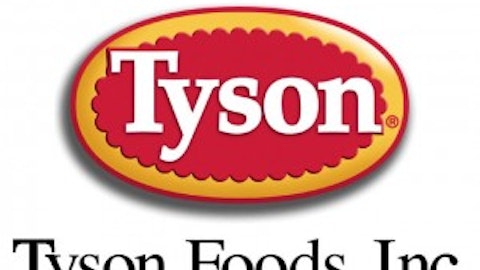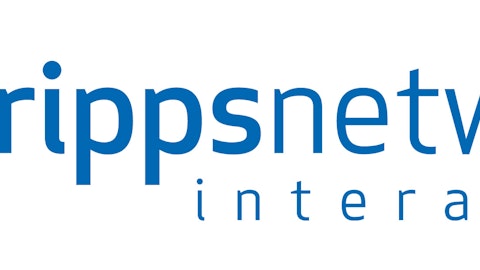Earlier this year, the world’s largest pork producer, Smithfield Foods, Inc. (NYSE:SFD), received an appealing buyout offer from a China-based meat processor– Shuanghui The board agreed to the $7.1 billion takeover (debt included) — the largest Chinese buyout of a U.S. firm in history. Now, though, it appears that U.S. regulators may block the deal as a matter of national security. If the deal fails, investors may have to worry, as the company is struggling to grow amid rising feed costs and tepid international demand. Here’s why federal regulators are concerned.
Sell it
Smithfield Foods, Inc. (NYSE:SFD)’s CEO, C. Larry Pope, has tried to convince the Senate Agricultural Committee that this sale is not only in the best interest of the company and its shareholders, but for the United States, as well.

Laundry list
Chinese ownership of the biggest pork supplier in the U.S. raises legitimate concerns. For one, there’s a question of food safety. China’s food safety rules are known to be quite lax, and if they owned the farms here in the U.S., the resulting food quality could easily suffer. Of course, there is also the issue of a secure food supply. Handing over these farms shifts quite a bit of bargaining power over to the Chinese, even if the hogs are on U.S. soil. Americans could see a shortage of pork in the supermarkets, and higher prices.
Other concerns include the proximity of some of the farms to U.S. military bases. Snooping is a hot-button issue right now (even if the focus is on the U.S.), and Chinese-owned farms that are a hop, skip, and a jump from our domestic installations could provide easy vantage points for prying eyes and ears.
What are the chances?
It’s hard to say how strong of a stance U.S. regulators will ultimately take, though the initial questions suggested a decent amount of hesitance. The deal could pave the way for future foreign agribusiness acquisitions, and some are worried that we are selling away one of our most fundamental needs.
Besides the political implications, some shareholders believe the buyout offer undervalues Smithfield Foods, Inc. (NYSE:SFD). Starboard Value, a 6% owner, opposes the deal, suggesting a breakup of the company as a more viable alternative.
Specifically, Starboard believes the company is worth, potentially, 60% more than the current offer — or about $10 billion, as a sum-of-the-parts valuation. This would imply a share price around $54, compared to today’s $33 per share. Selling off pieces of the company potentially yields a greater take — a buyer may be inclined to pony up for a portion of the business, while not interested in the entire company. Still, Starboard’s valuation is ambitious, according to other analysts and fund managers. Continental Grain [http://www.usatoday.com/story/money/business/2013/06/17/starboard-smithfield-sale-undervalued/2430033/], formerly one of the largest shareholders, had previously held a similar sum-of-the-parts valuation, but has since said Shanghui’s $34 offer is fair.
Investors need to keep a close eye on the developments here, but should not assume Smithfield’s bid will approach Starboard’s estimates. Both the board and management are behind the current offer, and there isn’t much convincing evidence currently to back up a price north of $50.
Furthermore, considering the relatively weak environment in the pork markets. If the acquisition falls through, the Street will likely shift focus to the tepid financial performance.
The article Smithfield Buyout Is a Matter of National Security originally appeared on Fool.com.
Fool contributor Michael Lewis has no position in any stocks mentioned. The Motley Fool has no position in any of the stocks mentioned.
Copyright © 1995 – 2013 The Motley Fool, LLC. All rights reserved. The Motley Fool has a disclosure policy.





